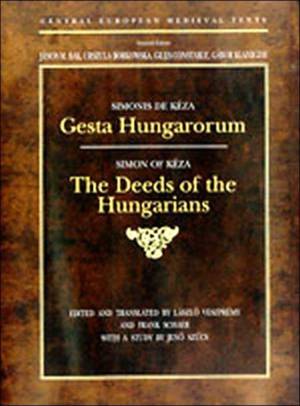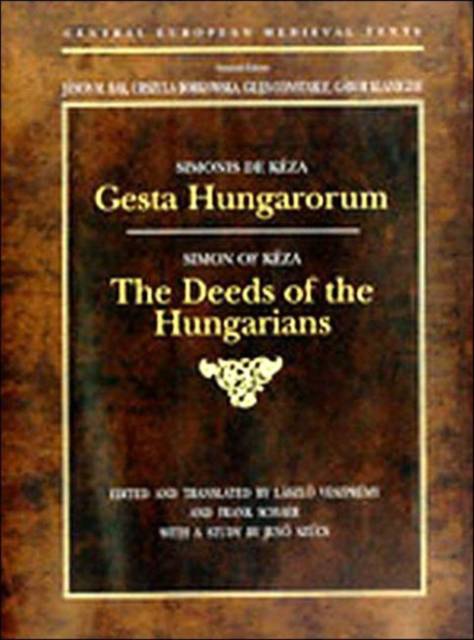
- Afhalen na 1 uur in een winkel met voorraad
- Gratis thuislevering in België vanaf € 30
- Ruim aanbod met 7 miljoen producten
- Afhalen na 1 uur in een winkel met voorraad
- Gratis thuislevering in België vanaf € 30
- Ruim aanbod met 7 miljoen producten
Zoeken
Omschrijving
Simon of Kéza was a court cleric of the Hungarian King, Ladislas IV (1272-1290). He travelled extensively in Italy, France and Germany and culled the epic and poetic material from a broad range of readings.Written between 1282-1285, the Gesta Hungarorum is an ingenious and imaginative historical fiction of prehistory, medieval history and contemporary social history. The author divides Hungarian history into two periods: Hunnish-Hungarian prehistory and Hungarian history, giving a division which persisted in Hungary up to the beginnings of modern historiography. Simon of Kéza provides a vivid retelling of the well known Attila stories, using such lively prose as - ".the battle lasted for 15 days on end, Csaba's army received such a crushing defeat that very few of the Huns or the sons of Attila survived, the river Danube from Sicambria as far as the city of Potentia was swollen with blood and for several days neither men nor animals could drink the water." The book is also significant because of the author's legal-theoretical framework of corporate self government and constitutional law, inspired by French and Italian sources and practice, which made this chronicle become an integral part of Hungarian historiography.
Specificaties
Betrokkenen
- Auteur(s):
- Uitgeverij:
Inhoud
- Aantal bladzijden:
- 340
- Taal:
- Engels
- Reeks:
- Reeksnummer:
- nr. 1
Eigenschappen
- Productcode (EAN):
- 9789639116313
- Verschijningsdatum:
- 1/01/1999
- Uitvoering:
- Hardcover
- Formaat:
- Genaaid
- Afmetingen:
- 165 mm x 236 mm
- Gewicht:
- 653 g

Alleen bij Standaard Boekhandel
+ 290 punten op je klantenkaart van Standaard Boekhandel
Beoordelingen
We publiceren alleen reviews die voldoen aan de voorwaarden voor reviews. Bekijk onze voorwaarden voor reviews.











